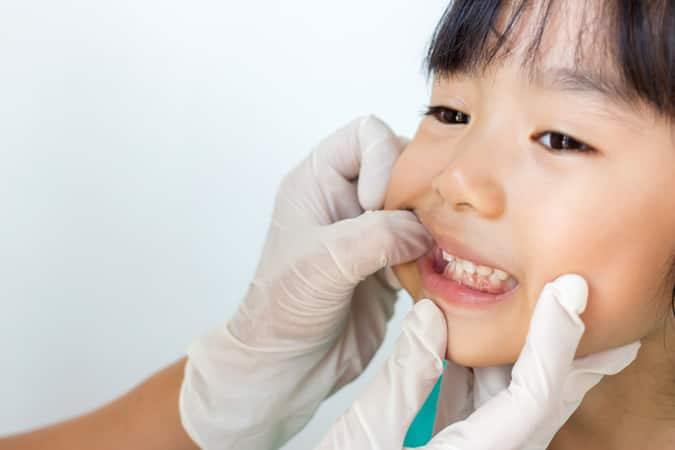-
-

ADULT ORTHODONTICS
Should You Use Mouthwash Before or After Brushing?Brushing and flossing are the foundation of a good oral hygiene routine, but mouthwash can also be a useful addition...

SELECTING DENTAL PRODUCTS
Soft Vs. Hard Toothbrush: Which One Should You Use?The toothbrush has come a long way. As the American Dental Association (ADA) notes...
-
Science & Innovation
- Oral Health and Dental Care | Colgate®
- Oral Health
- Finding Relief For Your Baby's Teething Fever


Teething is a part of a baby's development into toddlerhood - usually beginning anywhere between four and seven months of age - but it doesn't come without its share of aches and pains for everyone involved. As a mom, I've experienced this with my own two boys.
Teething fever, for example, is common when new teeth are coming in. Treating the fever may seem easy, but it is important to know which methods are best for your baby. Here are some common mistakes and better alternatives that I learned to help your baby find relief.
Common Mistakes and Methods for Baby’s Teething Fever
Mistake #1: Setting the room temperature too low. Even though this sounds like a logical way to make someone with a fever feel better, the temperature of your baby's room should always be between 65 and 70 degrees Fahrenheit.
Better Alternative: To help your baby feel better, you can give your baby a lukewarm bath or dip a cloth in lukewarm water, rubbing and massaging his body with it. What I like best about this is that your baby is able to feel relief immediately and it's safe for your baby.
Mistake #2: Giving your baby adult medication or aspirin. It's never a good idea to give your baby any adult medication, even it's a very small dose.
Better Alternative: There are fever-reducing medications specifically made for infants that are safe for them to take. Be sure to read the dosage instructions to ensure you give your baby the right amount.
Mistake #3: Giving your baby cold water to drink. Even though it seems logical to give your baby something cold when his body temperature is up, there has been some debate over whether water is good for them when they are so young.
Better Alternative: Keeping your baby hydrated is definitely a good way to help him through a fever, but rather than giving him cold water, opt to breastfeed, or feed him some baby formula.
In addition to these suggested alternatives, massaging the baby's gums with your finger can relieve some of the pain and help your baby sleep through the fever. Most importantly, stay calm. Teething fever is normal and normally doesn't last for more than a day. If the fever lasts for over two days, you should definitely call your pediatrician.
Related Articles


Even if you had cavities when you were young, your child doesn't have to develop them. Find out how to protect kids' teeth from tooth decay.

Related Products

Helping dental professionals
More professionals across the world trust Colgate. Find resources, products, and information to give your patients a healthier future








